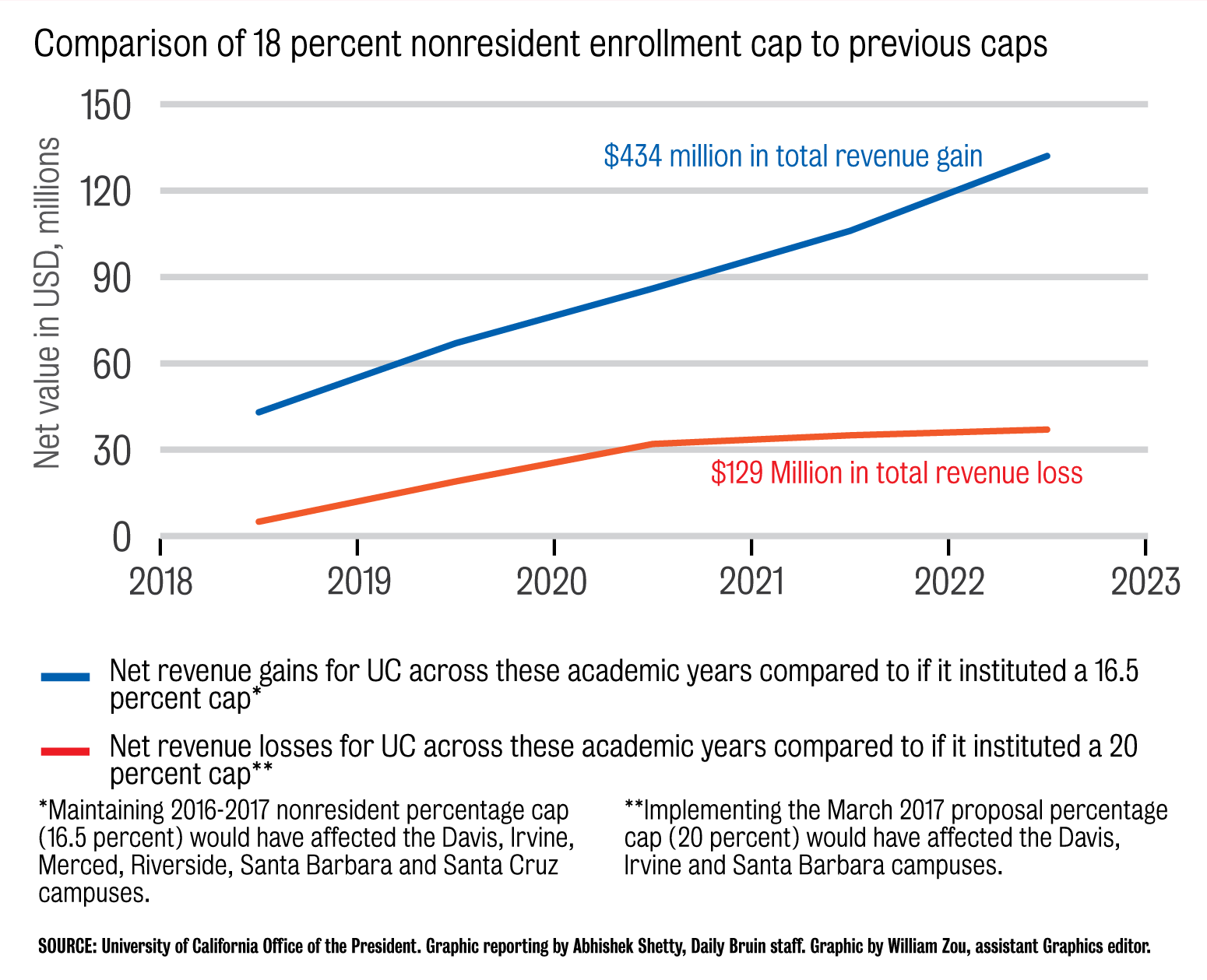Abhishek Shetty: State legislators must be more realistic about UC funding constraints

By Abhishek Shetty
May 11, 2017 10:01 p.m.
State legislators might seem to care about the well-being of the University of California and its students, but it was painfully clear they came to the dealing table with a deck of marked cards when they negotiated a nonresident enrollment cap with the UC.
At a March meeting, the UC Board of Regents had discussed capping nonresident enrollment at 20 percent. They later negotiated with state legislators and other stakeholders after that meeting to reach a consensus decision on an 18 percent cap.
The UC Regents will vote on this new nonresident enrollment cap during their meeting next week. If passed, it will limit nonresident enrollments to their current percentages at UCLA, UC Berkeley, UC San Diego and UC Irvine, and to 18 percent at five other UC campuses.
However, all the state has done is play the already cash-strapped UC into accepting a bad deal. When it comes to future negotiations, state legislators need to be cognizant of the UC’s funding constraints instead of focusing directly on their political goals. Otherwise UC students will be the ones to suffer, and that will boil over into its own political implications.
The cap itself stems from a state audit released last year that lambasted the UC for putting nonresidents before California students. Consequently, legislators implemented a provision in the Budget Act of 2016 that would give the UC $18.5 million if it established a nonresident enrollment cap, alongside enrolling more resident students.
If the board votes to pass this proposal during their meeting Thursday, the California Department of Finance will decide whether the UC has satisfied the budget provision and release the $18.5 million accordingly.
Considering this cap was negotiated with the state, it seems likely the Department of Finance would release the funding should it pass. However, this additional money isn’t just for an enrollment cap; it was also conditional on the UC enrolling 2,500 more resident Californian students before the 2017-18 academic year, which it did.
Compare that to the UC’s projections of how much revenue they stand to lose because of this cap, relative to their earlier proposed 20 percent cap. Relative losses hover around $35 million per year between 2020 and 2023.
Considering how sparsely the state has been funding the UC, there is little possibility that the state will cover up these gaps in revenue while this cap is in action, especially considering that UC spokesperson Ricardo Vazquez said the state hasn’t put forward any proposals to cover the difference.
Moreover, you have cases like assemblyman Kevin McCarty, who said he would have liked the cap to be 10 percent, which he acknowledged was unrealistic, but was happy this was a “compromise in the middle.”
Statements like this highlight the kind of aloofness and stubbornness the UC has to deal with. It’s as if state legislators are taking a page from “Trump: The Art of the Deal,” which includes the line “Sometimes, part of making a deal is denigrating your competition.” And the state is denigrating the UC by strong-arming it into implementing a cap and taking a financial loss.
Eventually, students are going to have to pay for this cap, either through a tuition hike that would stir further outrage among legislators, or through a decline in the UC’s education quality that legislators would barely notice.
The bleeding needs to stop. The state can’t just walk in and cut down on a funding source without making up for the losses. Legislators might have secured a temporary political victory by impressing their constituents with a visible limit on nonresident students at the UC, but the University will have that much less funding to use on California students. Lest they forget, overburdening UC students will only lead to further political repercussions for legislators down the road.
With a revised 2017 state budget unveiled yesterday, the state needs to start setting realistic funding and operational expectations for the UC. Further revenue losses are untenable to the UC’s operation, and the state needs to understand that.
And before someone points out the UC has $175 million in stashed-away funding to use, this so-called “hidden funding” was used for actual programs, it just wasn’t transparently documented. The audit did highlight some administrative bloat the UC can and should deal with, but it doesn’t have much extra money that can cover revenue lost from lower nonresident enrollment.
[Related: State legislators need to stay out of UC transparency problem]
While the UC, funded by California taxpayers, should primarily serve Californian residents, this service shouldn’t come at the cost of valuable funding. If the state wants an enrollment cap, it needs to ensure the UC at the very least maintains the revenue it has. However, considering California budget limitations, if legislators aren’t ready to increase the appropriation toward the UC, then they need to give the UC space to control how it makes up its revenue, instead of showboating bills that would implement unrealistic caps.
If there was ever a moment for the state to stop stacking the deck against the UC, it’s now.

